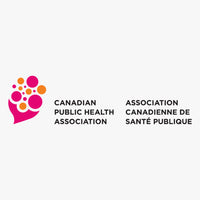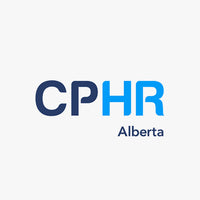Cannabis at work: understanding your rights as an employee and employer

Since the legalization of recreational cannabis in October 2018, and the legalization of edibles in October 2019, it’s important that Canadians have a good understanding of cannabis laws. Since July 2019, we have been conducting monthly Canada-wide surveys to better understand the public’s knowledge of these laws. We have covered topics like cannabis laws by province, cannabis on the road, cannabis at work and cannabis and travel.
During our cannabis at work campaign, we found that a lot of Canadian employees and people managers still don’t know how to manage cannabis in the workplace and 80% of them are looking for cannabis training at work.
We have created a list of questions and comments that we see frequently so that you can better understand your rights as an employee and employer.
“I have a medical cannabis authorization, can I consume cannabis at work?”
An authorization for medical cannabis does not entitle cannabis consumption at work. If an employee requires the use of cannabis during work hours, they must disclose this to their employer and discuss the possibility of accommodation. When you disclose, you are protected under the Canadian Human Rights Commission, where employers have a duty to accommodate up to the point of undue hardship an employee who has medical authorization to use cannabis for medical purposes.
“I have consumed cannabis every day before work for years and I will continue to.”
We’ve received a lot of comments from individuals who have taken our surveys saying that they have smoked cannabis before going to work for a number of years. As per Stats Canada, 13% of Canadians have consumed cannabis before work or at work and this number is likely higher. Safety at work is everyone's responsibility. Unless specific policies have been set by an employer, employees are not permitted to work while impaired by any substance including cannabis. Cannabis affects each person differently - the laws apply to everyone the same.
“My company stated they have a zero-tolerance policy for cannabis. Can they do that, is this legal?”
Employers are obligated to maintain a safe and healthy workplace therefore employers do have the right to have a zero-tolerance policy at work.
“Is random drug testing at work allowed?”
As per the Canadian Human Right Commission, random drug testing is only allowed for employees in safety-sensitive jobs in narrow circumstances. For example, when an employer can demonstrate drug abuse is a common issue amongst employees and testing is an appropriate response.
“There continues to be a stigma around the use of cannabis, how do I have a conversation with my manager about my medicinal cannabis authorization?”
Unfortunately, a stigma still exists but you can’t be discriminated against for using cannabis whether for recreational or medicinal purposes. You only need to have a conversation with your manager about your medical cannabis authorization should it affect your performance at work or if you need to consume cannabis during work hours. Some company policies may require their employees in safety-sensitive jobs to disclose their medical cannabis authorization together with any other prescriptions that may cause impairment. A recent case International Brotherhood of Electrical Workers v Lower Churchill set precedent that if an employee in a safety-sensitive workplace fails to disclose a medical cannabis authorization it could constitute Just Cause for dismissal.
“As a manager, if I suspect someone is high at work, what should I do?”
If a manager notices an employee is impaired at work, the manager has a duty to inquire about whether the employee has a substance abuse problem or requires accommodation. It is also important to note that as per the Canadian Human Rights Commission, the manager must only be concerned with an employee’s impairment if it “is impacting performance or the safety of the workplace.”
“Health Canada states that I shouldn’t drive for at least 6 hours after smoking cannabis, my high goes away much quicker than that!”
Similar to alcohol, THC impacts each person differently. Although you may only feel the effects for an hour or so, others have been known to experience the ‘high’ for up to 6 hours. In addition, one may be OVER the limit but not impaired, or UNDER the limit and impaired. However, being OVER the limit is breaking the law. Cannabis affects each person differently - the laws apply to everyone the same.
“If I can’t smoke cannabis at work for health reasons, my co-workers shouldn’t be allowed to take pills.”
“Impairment” can be defined as an altered state of mental and/or physical functioning. There are many potential causes of mental and physical impairment. These include factors such as fatigue and the effects of certain medical conditions.
Any substance that impairs you to do your work effectively or puts others at risk should not be consumed during work hours. Cannabis and prescription medicine should be treated the same. If an employee requires the use of cannabis or any other medication that may cause impairment during work hours, they must disclose this to their employer and discuss the possibility of accommodation. Ask your manager to review workplace policies with you.
----
Download our free workplace policy template. If you’re looking for cannabis education for your organization, take a look at CannEd a cannabis e-learning course for employers and employees. Follow us on Facebook, LinkedIn, Twitter and Instagram to learn more about the products we offer.











Leave a comment